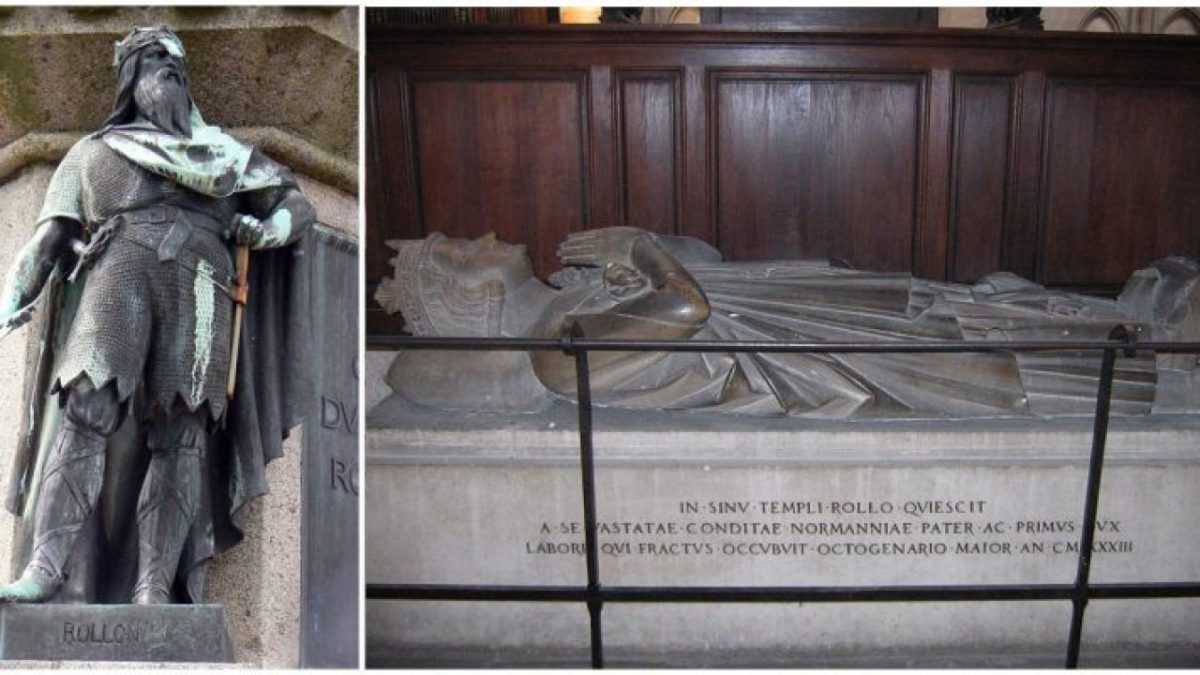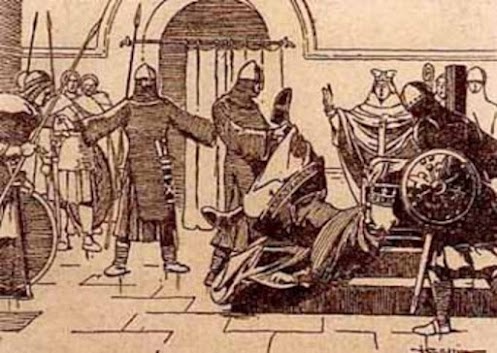A boy was born this day in the Zou state of eastern China, a region now known as the Shandong Province.
The year was BC551. He was born into the class of Shi, one of four loose castes or “categories of people” comprising the social structure of ancient China and represented by “gentry scholars”. Kǒng Fūzǐ (Master Kǒng) was educated in the “six arts”: Traditional Rites, Music, Archery, Chariotry, Calligraphy and Arithmetic, the mastery of which was believed to represent a state of perfection known as junzi, or “respectable person”.
Kǒng’s father Kǒng He died when the boy was three. He was raised in poverty by his mother, Yan Zhengzai. Even as a teenager, the boy showed a voracious appetite for learning, a trait which would serve him well, in later life.
Kǒng Fūzǐ worked a number of government jobs through his twenties such as bookkeeper and caretaker for sheep and horses and finally, “Minister of Crime”. He is best remembered not for his political career however, but as the learned teacher, scholar and philosopher, his name transliterated by a 16th-century Jesuit missionary as…Confucius.

Confucius’ teachings emphasized personal and governmental morality, uprightness in social relationships, respect for family and the veneration of ancestors. 2,500 years later, countless tidbits of conventional wisdom begin with the words “Confucius say“.
Many of the man’s teachings are as fresh and meaningful today as when he himself trod the earth, 2½ thousand years ago.
A disciple called Zi Gong once asked: “Is there any one word that could guide a person throughout life?” Centuries later, the master’s response would find voice in the great Jewish scholars Hillel and Philo of Alexandria, and in the writings of Plato, Aristotle, Isocrates, and Seneca. We in the West, know it as “The Golden Rule”. The Teacher replied: “How about ‘reciprocity’! Never impose on others what you would not choose for yourself.”

To some, Confucianism represents a continuation of an aboriginal Chinese religion, dating back some three thousand years.
Confucius himself claimed to have invented nothing, that he was only transmitting ancient ideas, but European admirers such as Voltaire saw in his teachings not the endless inheritance of “noble virtue” but a “meritocracy” of a sort which would have been familiar to the American founding fathers. A belief system in which the virtuous commoner who cultivates the teachings of the master was a superior being, better in every way to the shameless and wastrel sons of kings.

Such thinking took hold during the mid-Tang dynasty (AD618 – 907) in the form of “Imperial Examinations”, and lasted until the late Qing reforms of 1905. In theory, Confucian meritocracy took the form of written examinations, necessary to enter the civil service. In practice, the three-tiered examination produced a vast unemployable class among those holding the shengyuan or basic degree, while the highest or jinshi achieved degrees of difficulty to be feared as nothing short of savage.
Hong Xiuquan (born “Hong Huoxiu” on January 1, 1814) began studying for the exam, at age 5. By six the boy could recite from memory, the Four Books of Confucianism. Preliminary civil service examinations were easy for a boy who placed first and yet, the third level remained elusive. Years later, Hong Huoxiu took his first stab at the jinshi, an exam which fewer that 1%, ever passed. There was a second attempt at age 22 and a third in 1837 and each time…defeat. It was too much. His was a lifetime’s labor met with failure and the nervous and mental breakdown, was absolute. Hallucinations wracked his body and his mind for weeks and, when he emerged, he did so as the younger brother of Jesus Christ. According to him, quite literally.

Hong set about burning and destroying all the Confucian and Buddhist statues and books he could find, first in his home village and then others. The uprising of the “God Worshippers” would cascade and grow to straight-out civil war. Twenty to thirty million Chinese lay dead by the end of the “Taiping Rebellion”, by some counts as many as 70 million, a death toll only surpassed by World War II, some 100 years later.
Today, a likeness of the Master appears on a marble frieze, located on the courtroom’s south wall of the United States Supreme Court, along with the likes of Hammurabi, Octavian, Moses and Solomon.


Fun Fact: The Analects of Confucius is a written record of the sayings of the philosopher and his contemporaries, compiled in the centuries following his death in BC479.

In it, a follower called Yen Yüan asked the Master about perfect virtue. Confucius said, “To subdue one’s self and return to propriety, is perfect virtue. If a man can for one day subdue himself and return to propriety, all under heaven will ascribe perfect virtue to him”.
“I beg to ask the steps of that process”, asked Yen Yüan, to which the Master replied, “Look not at what is contrary to propriety. Listen not to what is contrary to propriety. Speak not what is contrary to propriety. Make no movement which is contrary to propriety”.
The Confucian maxim may have crossed from China to Japan with a Tendai-Buddhist legend, sometime around the 8th century. At the time, the story had nothing to do with monkeys.
In medieval Japanese, mi-zaru, kika-zaru, and iwa-zaru translate as “don’t see, don’t hear, and don’t speak”, -zaru being an archaic negative verb conjugation and pronounced similarly to “saru”, the word for monkey.

The visual play on words, then, depicts Mizaru, covering his eyes, Kikazaru, covering his ears, and Iwazaru, covering his mouth. Although it’s rare to see him anymore, there is a fourth monkey. Shizaru is generally depicted with his arms crossed or covering his privates, the name variously translated as “do no evil”, or “know no evil”.
The first known depiction of the “Three Mystic Apes” appears over the doors of the Tōshō-gū shrine in Nikkō, Japan, carved sometime in the 17th century.
Mohandas Karamchand Gandhi was a Hindu lawyer, member of the merchant caste from coastal Gujarat, in western India. Today he is known by the honorific “Mahatma”, from the Sanskrit “high-souled”, or “venerable”. He is recognized as the Father of modern India, who brought Independence to his country through non-violent protest. Gandhi owned almost no material possessions at the time of his assassination by a Hindu nationalist on January 30, 1948, preferring instead, a life of simplicity and poverty. Beside the clothes on his back, Gandhi owned a tin cup and a spoon, a pair of sandals, his spectacles, and a carved set of 3 monkeys, reminding him to hear no evil, see no evil and speak no evil.







You must be logged in to post a comment.